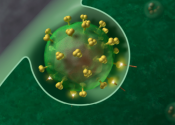HIV treatment keeps uninfected partner from contracting the virus
Anti-HIV medications suppress the viral load of people living with HIV and provide durable protection against heterosexual transmission a study led by the University of North Carolina at Chapel Hill found. Researchers found ...
Jul 18, 2016
0
3








